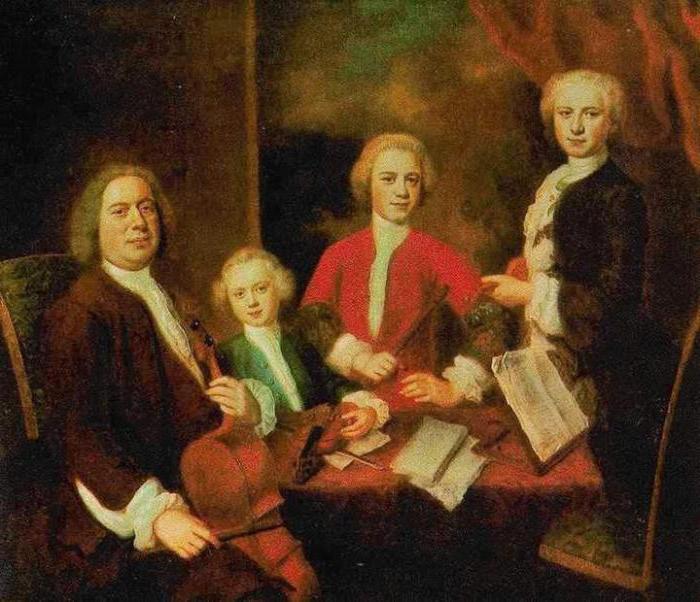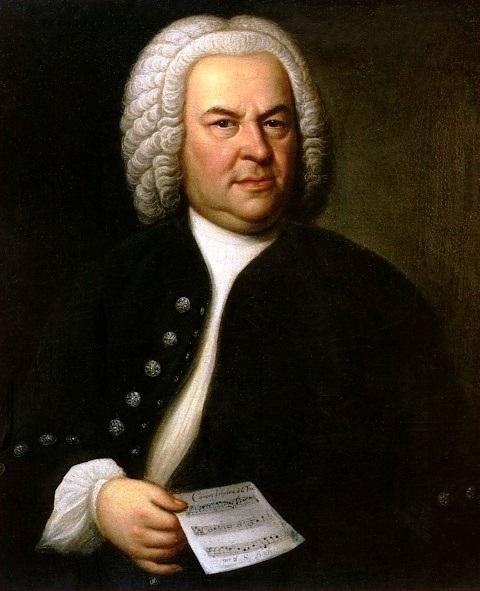The music created by composer Bach is one of the greatest secrets of the universe. But her creator did not have a calm life. Bach's biography, a brief summary of which is proposed here, speaks of years of hectic life on the road, about the service of people who require following the canon and denying the new. The original image of the creator of the passions of the Lord, passacals, clavier exercises, endless motets, oratorios, cantatas, Brandenburg concerts, will begin to open thanks to another musical genius - Mendelssohn.
Childhood and youth
In the land of Thuringia, the eighth child was born into the family of a musician, baptized under the name Johann Sebastian, who had a strange surname, which translates as "stream". But in reality, no one knew yet - this will be shown by Bach's biography, the summary of which is stated here - that a new ocean has appeared to the world. Parents died one after another when the child was 9 years old. He was raised by his uncle, also a musician. At the end of the gymnasium at the age of fifteen, Johann moved to Luneburg, where he studied music under the Church of St. Michael.
Arnstadt and Mühlhausen
True, at the beginning of his activity, Bach worked for less than a year in Weimar as a court musician with the Duke Johann Ernest. But then he is given the place of organist and leader of the music choir in the city of Arnshadt, which was an honor for the young musician. During this period, organ works are created.
The cantata of his own composition was first performed here. Here the famous passacalia was conceived, after a trip to Lubeck, to his correspondence teacher, whom he would create ten years later. For three years in Arnstadt, Bach Johann Sebastian showed a firm and persistent character, defending his demands as a composer who first invited a woman to sing in a church choir, which, according to his leaders, was incompatible with church music.
In 1706, Bach’s biography, a brief summary of which is presented here, makes another round - he leaves for Mühlhausen to the church of St. Blasius, where a good place and a decent salary are offered. Here he happily marries Maria Barbara. Here his first cantata was published. But for a long time in this town the composer did not linger, as he was deprived of the opportunity to create. A year later he leaves.
Weimar - nine years of life (1708-1717)
Here he is given creative freedom and greater content.
He becomes a chamber and court organist of the ruling Duke. His children and the best compositions were born in Weimar: cantatas in a new style, with the introduction of folk song motifs, warm, sunny, giving rise to all feelings and passions, especially the “Hunter”. Here he composed preludes, toccats and fugues (remember the famous "Toccata and Fugue in D Minor"), as well as organ music. The Weimar ruler, following his whims, placed the middle hand of the musician in place of Bach instead of Bach. The composer did not suffer insults and demanded resignation. For excessive pride, he was sent to prison for a month. When he was released, he and his family left for Kötten. So Bach's biography, a brief summary of which says about the winding path of a wandering musician, was replenished with another town that he glorified.
Kötten (1713-1723)
Bach Johann Sebastian will spend 10 years with Prince-musician Leopold as the bandmaster. During the travels of Prince Anhalt-Kötten, Bach accompanied his overlord. But when they arrived at the court of the sovereign Margrave of Brandenburg, he was shocked by the composer's skill, and asked him to write concerts in the Italian spirit, but so that native, German was present in them. Bach fired up a new thought for him, wrote Brandenburg concerts and sent an invaluable gift to the Margrave. But he had already forgotten his request and did not pay attention to the notes sent, which had been gathering dust for a long time, which no one needed. With these concerts, Bach was transported through time, in the era of romanticism. When he wrote these concerts, his beloved wife suddenly died. Perhaps in order not to feel pain, in one breath these uplifting concerts were created, powerfully raising from the depths of the soul all the brightest. A year later, Bach meets Anna Magdalena, who has a beautiful voice. He needs a mistress in the house, a mother for four orphans, and he proposes to her.

The wedding took place, as well as a happy marriage, which began quite prosaically, if necessary. Bach, working in the court only on secular music and creating masterpieces - sonatas and partitas for violin and cello, yearned for the organ, and therefore, when a place in St. Thomas Church appeared in Leipzig, he immediately composed “Passion for John” and it was accepted in place of the cantor.
Leipzig (1723-1750)
So the last move in his life took place. How to cover 27 years of creativity, extraordinary productive in these years? Just by listing the masterpieces. On the rise and inspiration, Bach created "Matthew's Passion." They are unusual in the composition of the orchestra when there were no brass and percussion, which made the music unusually “light”, elegant. The combination of choir and orchestra was new.

In addition, cantatas appeared with evangelical texts, including secular ones (“Coffee Cantata”, who would have guessed that it was composed by a cantor from the church?), Concerts for cello and harpsichord, and, finally, “Mass in B minor”. This is the most amazing piece that was not performed during his lifetime, because those orchestras could not reproduce it for technical reasons. For our days a few more masses were lost. In Leipzig, he completed the Well-Tempered Clavier. Bach visited, at the personal invitation of King Frederick II (1747), and bestowed the Musical Offering. The king did not give the musician anything. In 1750, after unsuccessful eye operations and complications after them, Bach passed away at the age of 65.
Bach's music is an immeasurable rise of the human spirit, a victory over time and space.